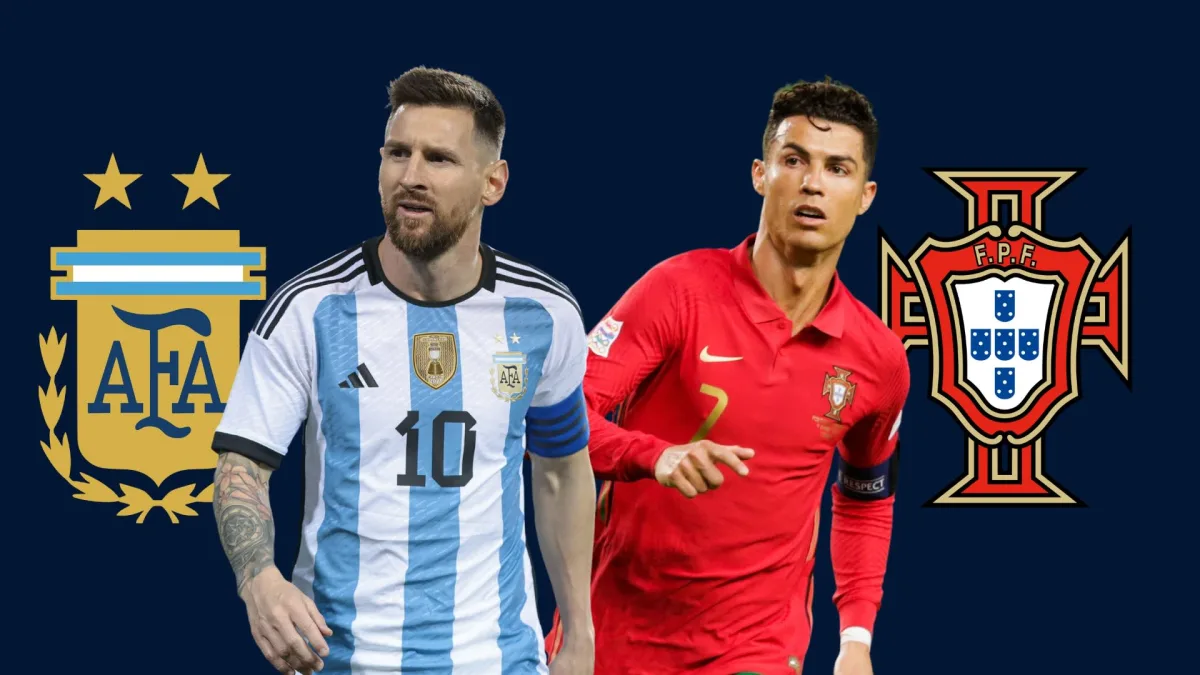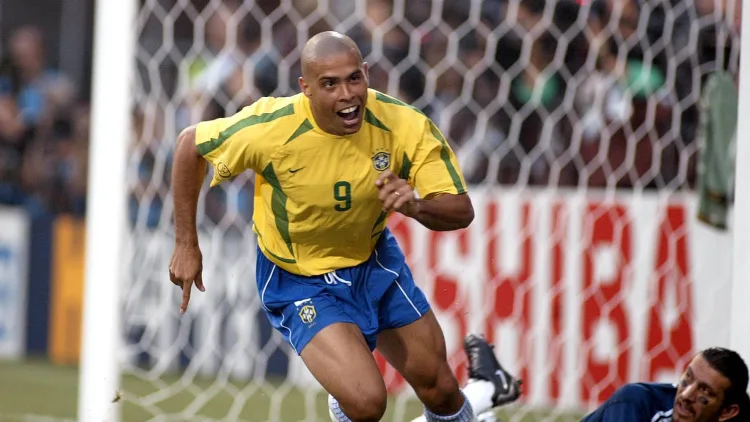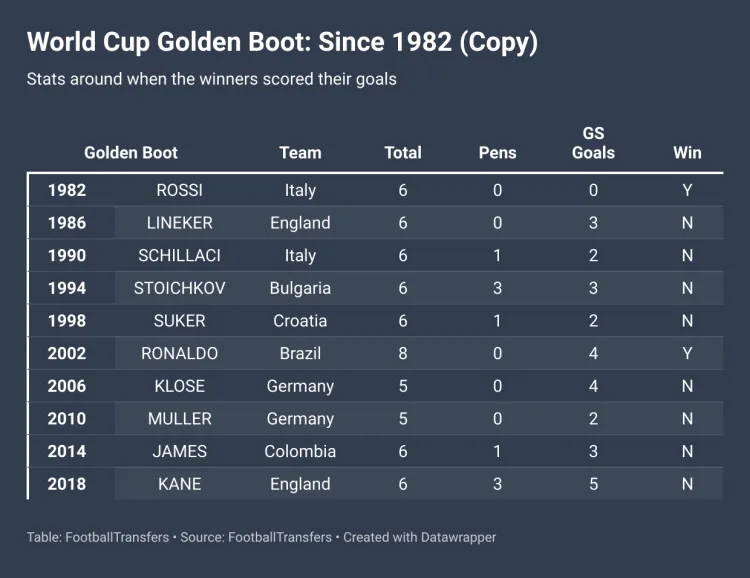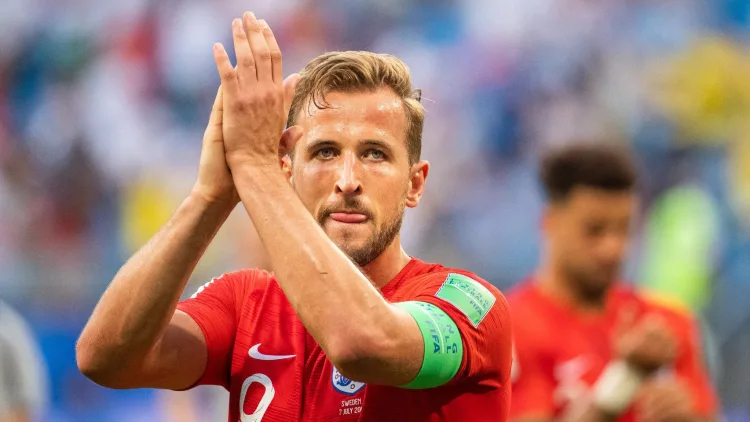-
News
- 15 Apr 2025
How to win the World Cup Golden Boot

The World Cup Golden Boot is a much-coveted award and one that can shape careers.
Players who have won it in the past have burst onto the scene and announced themselves to the world; others have secured huge transfers off the back of it. And one disappeared virtually without trace.
But what do the trends show in terms of what it takes to win this title? What have the previous winners done that can help point us in the direction of who could top the bill here?
World Cup 2022: Teams, fixtures, results, favourites
World Cup all-time top scorers
Ronaldo vs Messi at the World Cup: How their stats, goals, assists and performances compare
Let’s take a look. In our analysis we’ve looked back to 1982 which is arguably the birth of the ‘modern’ World Cup, in terms of the number of games to play and its structure. That gives us 10 Golden Boot winners to analyse.
Do they have to win the tournament?
Categorically, no. In our research only Paolo Rossi (1982) and Ronaldo (2002) won the tournament of the previous 10 winners. Obviously the deeper your team goes into the tournament, the more matches you play and therefore the more chance you have of scoring, but winning the tournament is in no way a prerequisite for a Golden Boot winner.
Do they have to hit penalties?
This isn’t a deal-breaker, either. Certainly hitting penalties is of significant benefit; three of Kane’s six goals in 2018 were from the spot, while Hristo Stoichkov in 1994 benefited from a similar ratio. But it’s far from essential; Thomas Muller (2010), Miroslav Klose (2006) and Ronaldo (2002) all got by without scoring one, while the forwards who bookend these, Davor Suker in 1998 and James Rodriguez in 2014, both scored six goals and just one each was a penalty.

Do they have to rack up the goals against poor opposition?
It always helps to play poor teams. Kane scored two against Tunisia and three against Panama in 2018. Klose did most of his damage against Costa Rica and Ecuador in 2006, while Ronaldo in 2002 bashed China, Costa Rica and Turkey (twice). But it’s far from a necessity. James scored against high-class opposition in 2014, scoring against the likes of Brazil and Uruguay. Suker netted against France, the Netherlands and Germany, among others. Muller, Argentina and England. Rossi scored four of his six against Brazil and West Germany. Being positioned in a group with a team that is conducive to conceding goals is a benefit, but it doesn’t decide things.

Do they need to score loads in the group stages?
Again, no. Rossi in 1982 didn’t even score in the groups, with all of his coming in the latter stages. And the likes of Suker (98), Schillaci (90) and Muller (10) did more damage in the knockout stages than before that.
But netting in the group stages can have clear benefits; Kane (18) and Klose (06) did all their damage in the groups, while Rossi is the only man to not net at that stage and still go on to win it.

Do you need to play for a ‘big’ team?
Ideally, yes. Stoichkov and Suker and James played for supposed weaker nations that had good tournaments, but the remaining seven were from established nations; Brazil, Germany and Italy.
So who is going to win then?
The World Cup Golden Boot is an increasingly difficult event to predict. Of the previous winners, only Kane (18) and Klose (06) were among the pre-tournament favourites. Ronaldo wasn’t fancied in 2002 after nearly three years of crippling injury problems. Rossi had been out of the game for two years in 1982 following a betting scandal. Elsewhere the likes of Suker, James, Stoichkov and Schillaci landed at bigger prices and weren’t discussed prior to the event.
So where to look here? Well, Harry Kane (8.0) does tick plenty of boxes. He has a perceived easier group, hits the penalties and has previous - though no player in history has ever won the Golden Boot twice.
And in recent times it’s a necessity to score at least twice in the group stages. You need to go back to Rossi in 1982 to score any less than that. So having an easier run or a team you can score against is important.
🎩🎩🎩
🇮🇹 Paolo Rossi had himself a day against Brazil at #FIFAWorldCup 1982— FIFA World Cup (@FIFAWorldCup) November 6, 2022
And while it’s not a prerequisite to hit the penalties, it can, quite obviously, help your cause. Kane benefitted more than any other player since Hristo Stoichkov in 1994 in order to reach his total, scoring three last time out. And while we’re talking about the World Cup, both Antoine Griezmann (2) and Cristiano Ronaldo (3) heavily relied on penalties in the last two European Championships to win the Golden Boot in those respective competitions.
Certain penalty takers are Kane, Ronaldo, and also Lionel Messi (13.0). If you buy into the idea that this is destiny for the Argentine then his price is extremely attractive and he is in the best form for nearly 18 months, then there’s plenty of reason to back at this price.
BUT. A curveball. With the exception of Kane and Klose, the average odds of every winner in the 1990s is over 100.0. So if you want to look a little deeper, let’s look at a higher value price for a player at a big club. Antoine Griezmann (41.0) will retain penalty duty and has previous at international tournaments. He won the Golden Boot at 2016 and scored four at 2018. That counts for much and there are injuries to potential replacements around him.
But this is one of the toughest markets you can get right in a World Cup. It’s best to bet small, and go with your gut!



















